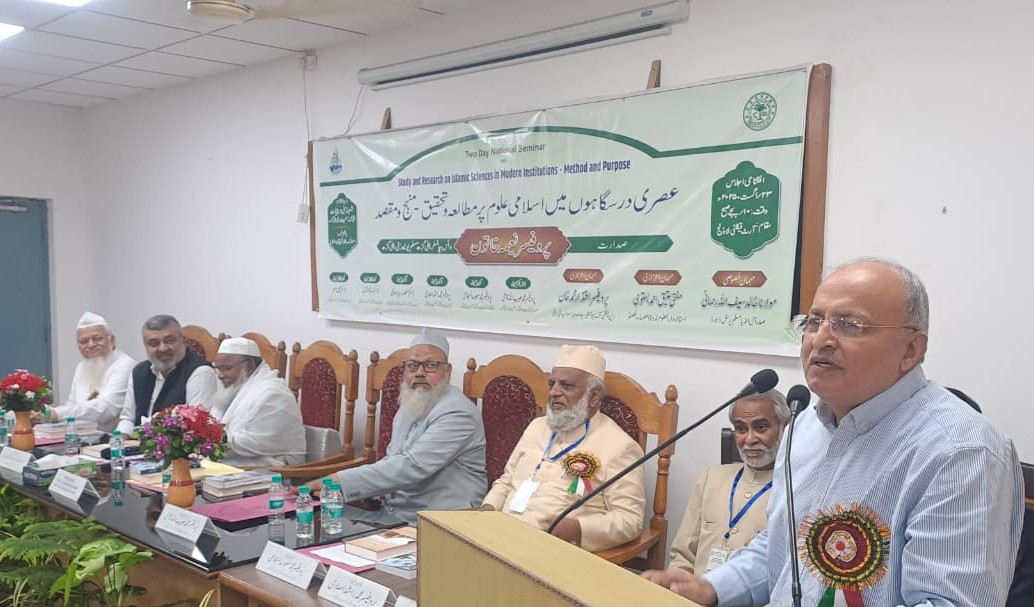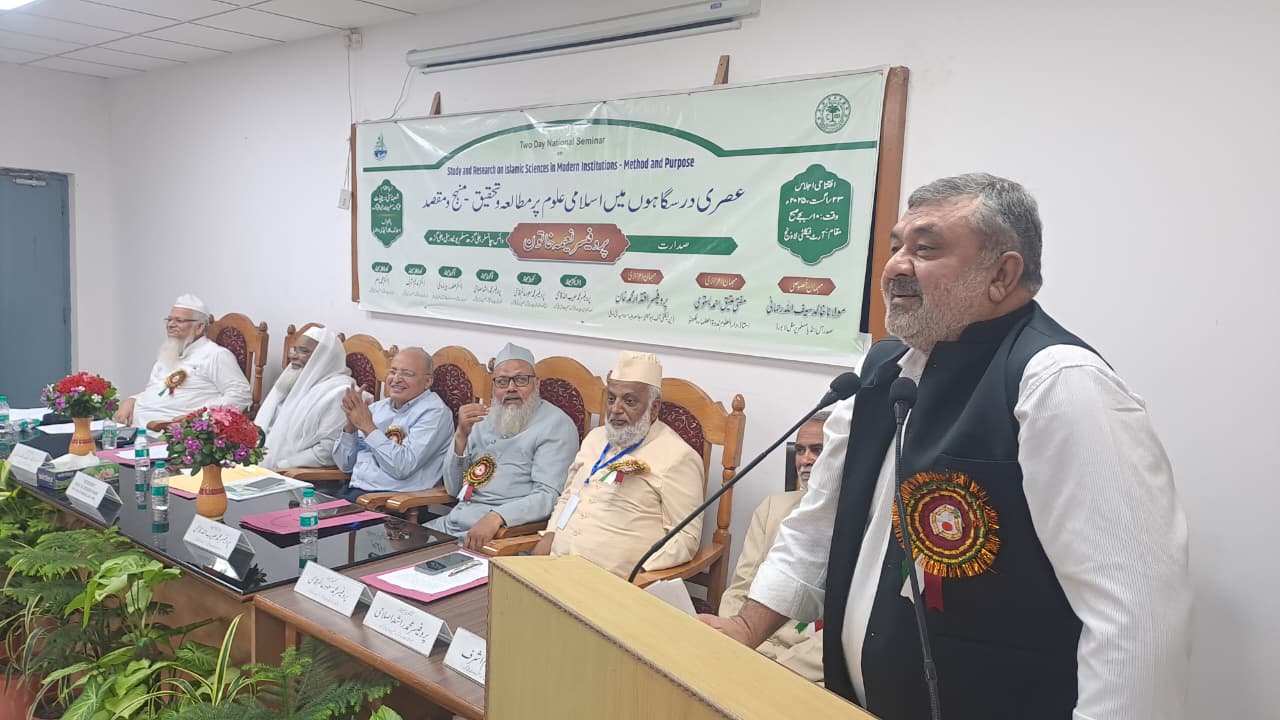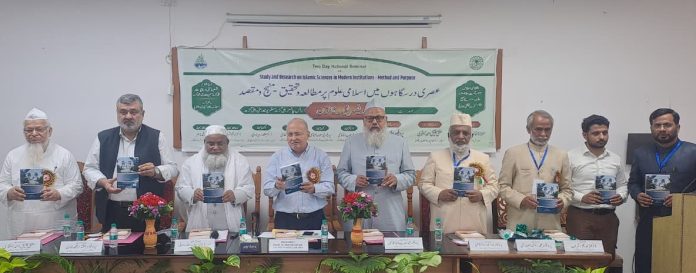Aligarh: A two-day national seminar on “Study and Research on Islamic Sciences in Contemporary Educational Institutions: Methodology and Purpose” was organised at the Faculty of Arts Lounge, Aligarh Muslim University (AMU), by the Department of Theology, AMU, in collaboration with the Islamic Fiqh Academy, New Delhi.

The seminar was presided over by AMU Pro-Vice Chancellor, Professor M. Mohsin Khan, who emphasised the importance of unity and cautioned against actions that could invite criticism. He recalled Sir Syed Ahmad Khan’s vision of integrating modern sciences with religious education and promoting independent research, open-mindedness, and moral values.
Delivering the keynote address, Chief Guest Maulana Khalid Saifullah Rahmani, President of the Islamic Fiqh Academy, underscored the need for excellence in research. Citing Prophet Muhammad’s ﷺ saying that any task should be performed with proficiency, he called for in-depth expertise and openness to differing interpretations. He noted that while earlier religious traditions had restricted independent reasoning, the Prophet encouraged thoughtful engagement with diverse views.

Guest of Honour, Professor Iqtidar Mohammad Khan, urged scholars to choose research topics aligned with contemporary needs so that their work has practical value. Another Guest of Honour, Mufti Atiq Ahmad Bastavi, General Secretary of the Islamic Fiqh Academy, highlighted the significance of this seminar as a first-of-its-kind effort to evaluate research in Islamic Studies across Indian universities. He praised AMU’s cultural legacy and called upon its faculty and students to safeguard it.
On this occasion, two books were also released by the guests: The History of Hundred Years of Aligarh Muslim University, compiled by Professor M. Saud Alam Qasmi, and Al Deen, edited by Saleh Zahid Ali and Talha.
Earlier, welcoming the participants, Professor Mohammad Habibullah Qasmi, Dean of the Faculty of Theology, emphasised Sir Syed’s three-fold formula of Education, Training, and Culture as essential for holistic learning. Introducing the seminar’s theme, Professor Saud Alam Qasmi, former Dean of Theology, stressed the need to reform religious education to address current challenges.
The seminar witnessed participation from eminent scholars, including Professor Obaidullah Fahad Falahi, Professor Faheem Akhtar Nadwi, Professor Tauqeer Alam Falahi, and Professor Naseem Ahmad Khan, along with faculty members, students, and researchers from across the country.
Dr. Nadeem Ashraf conducted the proceedings, and Professor Mohammad Rashid Islahi extended the vote of thanks.




